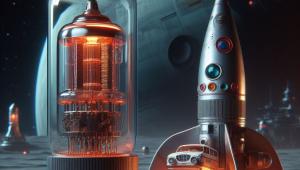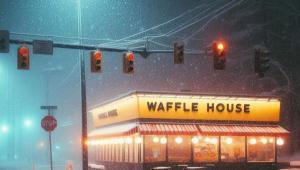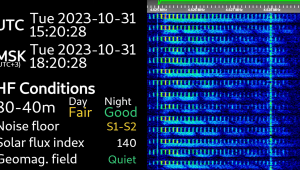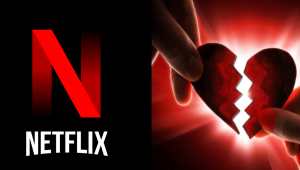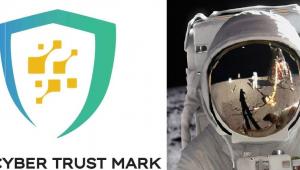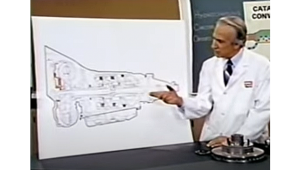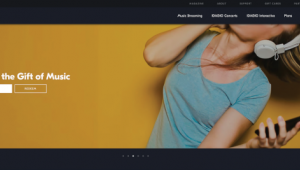Honestly speaking, I can't understand the Vinyl resurrection in the digital age. In my humble opinion, what can be considered a true recording Vinyl is just one that is fully processed in the digital world up to final production. I disagree that an recording that has been processed entirely within digital world and then transferred to Vinyl will have the same sound quality of a native Vinyl entirely from analog world. Long live the return of Vinyl, but only for the true like that sold in used record store. But now I have no more patience to hear hisses, noise, clicks and other anomalies that are inherent from old Vinyl, but whose problems are absent of the excellent digital recordings, fortunately (some few CDs, SACD, Blu-ray 96-192Kz, Hi-Res Audio, etc.).
Analog Vs. Digital: All Men Shall Become Brothers

The sometimes bitter relationship between Grooves and Bits makes the Crips versus the Bloods look like a bromance. Sometime, somewhere, at probably around 2:00 a.m. in a bar, maybe somebody will explain to me why such a trivial thing like music storage media invites such acrimony. Meanwhile, the war rages on.
By any metric, the analog versus digital debate is the biggest thing in audio, at least since electric recording superseded acoustic recording in the 1920s, which I gather generated considerable commotion. Here’s one metric: On our website, if I blog about new 4K technology, I might get a comment or two. If I blog about analog versus digital, I might get 100 comments. And if I venture a preference, I get beaten to a pulp by 50 commenters. That’s fine; I’ve got health insurance.
Sometimes I’m also glad I have life insurance. The discussions in the 1920s were gentile; “tone tests” were used to showcase audio technology, challenging audiences to hear the difference between live music and recorded music. Critics of the day offered their scholarly opinions. Today, thanks to the anonymity of the internet, analog/digital discussions are somewhat less scholarly. Personal attacks are not uncommon.
Could Sony, that most stalwart of companies, also be the Henry Kissinger of audio?
With that in mind, I was heartened to see a glimmer of hope, a dove of peace. Could Sony, that most stalwart of companies, also be the Henry Kissinger of audio? The Sony PS-HX500 belt-drive turntable plays records, and it also outputs a hi-res audio signal. In particular, you can connect via USB and grab the grooves with resolution up to 5.6 megahertz DSD, or 192-kilohertz/24-bit WAV. Yes, there are numerous USB turntables on the market. But this is apparently the first turntable to code the wiggles into hi-res caliber. And yes, you can easily rip vinyl using your own turntable and external gear, but I like this turntable because it so neatly marries vinyl with high-quality digital. Surely such a device could create some common ground and forge a consensus between warring factions.Or maybe not. I can already hear the snarky comments: The mechanics of the turntable aren’t good enough to achieve digital quality. Or, the file formats aren’t good enough to achieve analog quality. A good USB turntable like this asks, can’t we all just get along? But its voice is drowned out by the shouting.
Ah, shouting. That reminds me of an analog versus digital listening session a few years ago. After various musical selections, each purporting to show the superiority of one storage medium over the other, the final test was the last movement of Beethoven’s 9th Symphony. As the music played, the moderator switched back and forth between an analog signal and a digital one. At the end of the movement, even before the reverberation had faded, the shouting erupted, each side anxious to claim victory. I didn’t say much and was later criticized by people on my “side” for not saying more. The fact is that after hearing one of the greatest pieces of music ever written, a boundless, even defiantly naïve call for unity, I wasn’t much interested in arguing about audio.
Well, you can find me at the bar. If you can explain the analog versus digital thing, the next beer’s on me.
- Log in or register to post comments


bang on, Ken. I love my analog rig and I love my CDs. I find that which is better comes down to the specific album and how much care has been taken in post production. I find particular pleasure in LPs that were carefully recorded and produced where their equivalent CDs have had engineers mess around to force what most would think is a more CD like sound but is in fact just processing. and Well produced CDs are breathtaking period. Records produce a mellow sweet sound I love. CD produce accuracy thats breathtaking.
A good record is so good that in the end it doesn't matter whether I am listening to LP or CD, its the music I'm after.
and its why I never got into high rez audio. If the music I want isn't in hi rez, and it isn't, because it was almost all recorded before that kind of resolution existed, and back converted hi rez doesn't sound better.








